#paramont pictures
Explore tagged Tumblr posts
Text
James Marsden, Jeff Fowler, Colleen O'Shaughnessey, Tika Sumpter, Jim Carrey, Ben Schwartz, Keanu Reeves, Krysten Ritter, Idris Elba and Lee Majdoub attend the premiere of "Sonic The Hedgehog 3" on December 10, 2024 in London, England. Footage by reneemadeulook Instagram
#james marsden#collen oshaughnessen#jim carrey#ben schwartz#tika sumpter#keanu reeves#idris elba#jeff fowler#krysten ritter#sonic movie 3#paramont pictures#london england#united kingdom#london uk#celebrities
112 notes
·
View notes
Text
James Marsden, Tika Sumpter and Ben Schwartz talk about Sonic 3 in "Close-up with Perri Nemiroff." PNemiroff X.com. Full interview: youtu.be/6IGCI4FhlpA
51 notes
·
View notes
Text
James Marsden and Ben Schwartz leaving Brazil after participating in CCXP24. December 7, 2024. TikTok source: TikTok celebsnobr
#james marsden#sonic movie 3#airport#sao paulo brazil#Paramont Pictures#ben schwartz#celebrity lifestyle#celebrities
7 notes
·
View notes
Text
James Marsden, Tika Sumpter and Ben Schwartz attend a "Sonic The Hedgehog 3" Photocall Overlooking São Paulo on December 07, 2024, in Sao Paulo, Sao Paulo. Source: sonicmovie X.com
13 notes
·
View notes
Text
Actually im changing my mind. They need to lean into gender more. Gladiator 3: Time for Elagabalus. Written as if every slandor against him was true. A scene where after eating blue dyed dophin brains at one of his mandatory banquets the attendees are crushed to death by 2 tons of rose petals. She changes pronouns at least 4 times throughout the movie and executes whoever guesses wrong. Royal wedding to that chariot rider that everyone has to pretend not to be pissed about. His evil mom is a main character who is also gay. The nun he married is also a main character who is gay. Gender affirming surgery somehow a sucess that doesnt end in sepsis. Chariot races in the palace. Theme of the movie is laying bare the sham of masculinity/roman social norms/ appeal to the glory of the past as a tool of social control that is conceling a rapidly declining empire that is failing because of an inability to adapt to the present and therfore the future. And also inflation. Sadly the cowardly paramont pictures will probably put some eyeliner on him and rinse/repeat the last few movies
7 notes
·
View notes
Text
Love these Old Theatres! These pictures are are from the Paramont Theatre in Denver, Colorado! Pure Prairie League played there on June 1, 2025! #PurePrairieLeague #denvercolorado #livemusic #johnheinrich #heinrichmaneuver #heinrichmaneuverproductions #jeffzona #scottthompson #randyharper #jeredcamic #bassguitar #electricguitar #acousticguitar #drums #pedalsteel #pedalsteelguitar #saxophone #fendertwinreverb #paramounttheatre #2025 #June2025 #touring Scott Thompson Jeff Zona Jared Camic Randy Harper Heinrich Maneuver John Heinrich Aaron Ochoa
#music#saxophone#nashville#john heinrich#dobro#flute#oboe#country music#english horn#musicians#pure prairie league#denver#paramont theatre#heinrichmaneuver#pedalsteel
0 notes
Text
Mental Health hospitalizations taking lot mental health Matthew Martin Luciana Grande Maria aethrope Constance Gary six times tried in Durham NC and Alastair Burlingham.... Co-defendants against in 1999 case of harassment that I in defense of believing I believed crimes were being committed of both have proven when discovered them sniffing around in America my Paramont Pictures offices with Madia Sheik Ell Ard not related to the Sheik El Ard's if Saudi Arabia of whom Is married into after encountering.... at Richmond College causing a falling out with Najat Saudi whom teamed up with newly arrived Anoushka granted back then but never again mental monies snatched by a General Practitioner when I admitted I were alive as Keisha the Hot Singer whom she had to appease to get her team out of trouble of rewarding it ....
0 notes
Photo

Ok I get that Jamie made mistakes and he is written now as the enemy of the Duttons with all his father wanting to kill them and Jamie not getting him arrested etc. But John and Beth are bullies, did they have to call him to the announcement and make him think they are there for him when they knew he is not being endorsed, NO but they did it anyway ! John saying that they wouldn't have missed it, and Jamie thinking that they were there for him and feeling happy about it shows that that's all he cares about ! They were cruel, and yeah Jamie should tell them about his father but do you blame him for not doing that ! Beth definetly wants him dead, honesty the only time I like her is when she is around RIP, she is a non stop bully, you don't have to treat people like shit to be a strong powerful woman or prove a point, I feel like the show celebrates her mean behavior ! that assistant did nothing wrong and she fired him anyway just for fun. John only uses Jamie when it's suitable. The only person who truly cares about Jamie is Kayce. The Jimmy storyline needs to end, I get he is getting his own show, but it is too distracting and has nothing to do with main storyline.
#duttons#yellowstone#yellowstonetv#jamie dutton#beth dutton#john dutton#paramont pictures#drama show#total drama#drama series#tv seires#tv shows#tv series#yellowstone season 5
57 notes
·
View notes
Photo
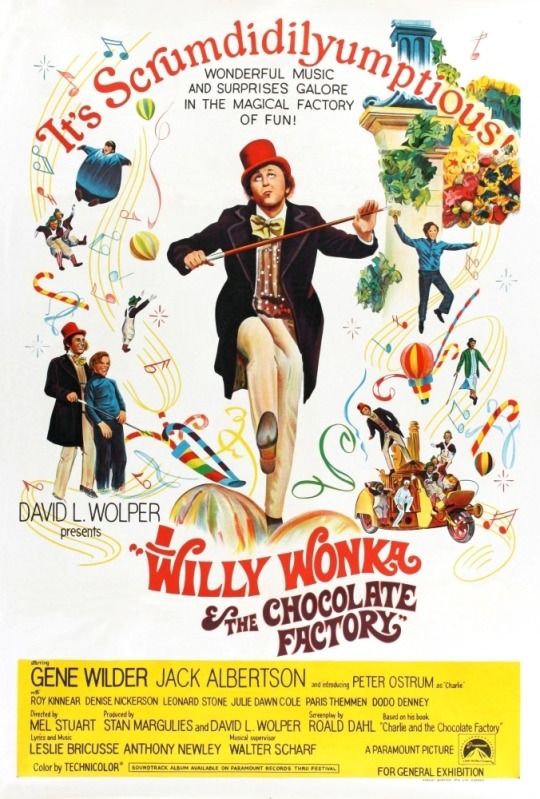
#willy wonka#movie poster#movie posters#films#willy wonka and the chocolate factory#show#gene wilder#hack alberston#peter ostrum#mel stuart#stan marglies#david l wopler#roland dhal#paramont pictures#leslie bricusse#anthony newley#walter scharf#mosvies#movies#movie#poster#film#posters#shows#roy sinnear#denise nickerson#leonard stone#julie dawn cole#paris themmen#dodo denny
355 notes
·
View notes
Text

alternative movie poster for smile (2022)
1/? of personal projects this year
#smile movie#smile movie 2022#smile#filmsiwatched#mypost#parkerfinn#alternative movie poster#amp#fanart#fan made movie poster#movie poster#paramount#paramont pictures#2022#sosie bacon#poster design#movie poster design
6 notes
·
View notes
Text



16 notes
·
View notes
Text


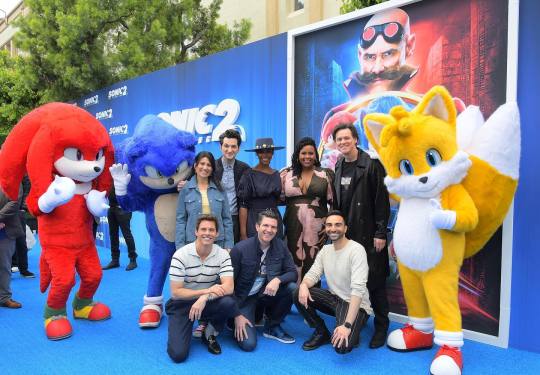
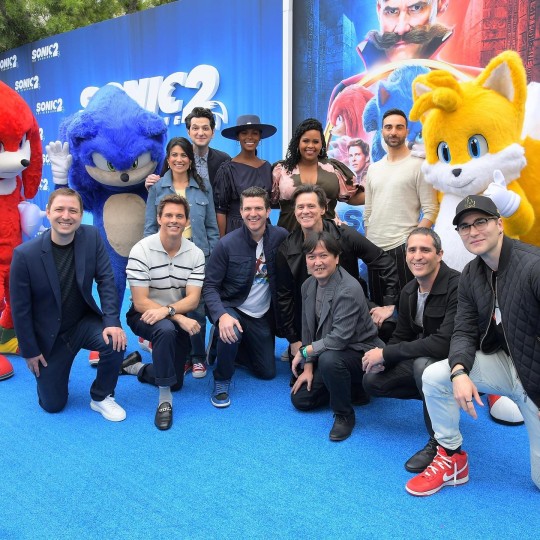
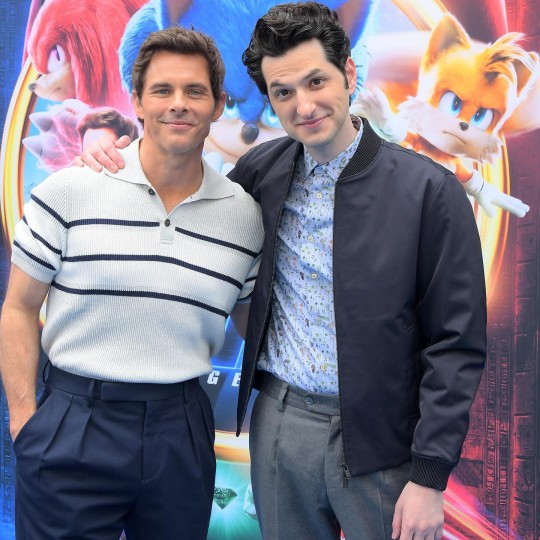
#sonic the hedgehog#sonic movie#jim carrey#james marsden#ben schwartz#tika Sumpter#family#family day#paramont pictures#paramont
162 notes
·
View notes
Text


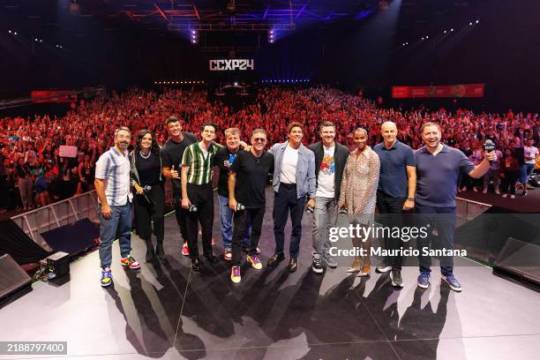



Ben Schwartz, Tika Sumpter, James Marsden, producer Toby Ascher, director Jeff Fowler and producer Neal Moritz pose with hosts during a CCXP 2024 Omelete Group Interview in support of "Sonic The Hedgehog 3" at the São Paulo Expo on December 07, 2024, in Sao Paulo, Brazil. (Photo by Mauricio Santana/Getty Images for Paramount Pictures)
9 notes
·
View notes
Text
James Marsden attends the Los Angeles premiere of Paramount's "Sonic The Hedgehog 3" at TCL Chinese Theatre on December 16, 2024 in Hollywood, California. (Footage by Charles Kim/Getty Images)
#james marsden#sonic movie 3#paramont pictures#los angeles california#james marsden edit#james marsden edits
4 notes
·
View notes
Text
James Marsden talks about the Sonic franchise at CCXP24 in São Paulo, Brazil. Source Instagram omelete.com. and https://youtu.be/h-b6-eeml08?si=dMeYVIDNNDFKRr7w
7 notes
·
View notes
Text
Pop Modernist Dystopia
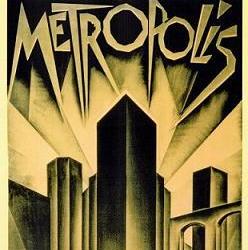
In an interview with Peter Bogdanovich shortly before his death in 1976, Fritz Lang said of Metropolis, “You cannot make a social-conscious picture in which you say that the intermediary between the hand and the brain is the heart. I mean, that's a fairy tale – definitely. But I was very interested in machines. Anyway, I didn't like the picture – thought it was silly and stupid – then, when I saw the astronauts: what else are they but part of a machine? It's very hard to talk about pictures—should I say now that I like Metropolis because something I have seen in my imagination comes true, when I detested it after it was finished?”
Lang wasn’t alone back in 1927 when the film was first released. Critics applauded the striking visuals and the ambitious technical achievement, but lambasted the trite melodrama and cheap platitudes. In a vicious New York times review, H.G. Wells attacked the picture’s anti-progress, anti-technology message, accused it of ripping off several earlier works (including his own), and called it “quite the silliest film.” It was also attacked as a bunch of simpleminded and heavy-handed pro-communist propaganda, while at the same time and ironically enough it was hailed by the Nazis for portraying the overthrow of the Bourgeoisie.

(As a quick sidenote, Lang’s wife, novelist and Metropolis screenwriter Thea von Harbou, became quite infatuated with the Nazis after they took power, which led to a divorce shortly before Lang fled to the States in 1936.)
The story, admittedly, is pretty trite. In the year 2000, 2026, or 3000 (depending on which cut you see), there is no middle class. The top .001 percent of superwealthy intellectuals live in unimaginable luxury in the towering city of Metropolis, while the teeming masses of impoverished proles work the monstrous machines in the underground factories. Freder (Gustav Fröhlich), son of Metropolis’ ruler, falls for a poor worker named Maria (Brigitte Helm). Meanwhile an engineer with a beef builds a humanoid robot to exact a little revenge, and the workers begin muttering about conditions and revolution. There are another half dozen storylines at play, but we’ll keep it simple here. There are some disasters, some rioting, things go a little crazy there for awhile until everyone learns they can live together happily. Yes, well. But the story hardly matters. Background becomes foreground in a film so packed with unforgettable images.
Produced by the German studio UFA, Metropolis called for 13,000 extras, over 200,000 costumes, and a city’s worth of monumental sets. It took fifteen months to shoot, over which time its initial 800,000 Reichmarks budget ballooned to over five million.
At the Berlin premiere for distributors, Lang’s directors cut ran about 153 minutes. Everyone, particularly Paramount, who’d signed a distribution deal with UFA, felt the film was way too long and the story far too tangled and confusing. That Berlin screening would be the one and only time anyone saw a complete version of Metropolis for the next eighty years. Paramount took the print and cut it down to 92 minutes, excising a number of characters and subplots, as well as the perceived commie propaganda. Then they brought in a new writer to concoct a new story to replace Lang’s original intertitles. UGA took Paramount’s version and cut still another ten minutes out, and other international distributors made other cuts of their own.
During its first theatrical run, Metropolis brought in a pitiful 75,000 Reichmarks. The brass at UFA was not pleased. Neither was Paramont, and the film ostensibly vanished. From that point, the history of Metropolis became as tangled and complicated as the original plot about class struggle, dehumanization, several layers of betrayal, a couple illicit love affairs, and robots. Beginning in the early Seventies, a number of attempts were made to restore Lang’s original complete vision by splicing together scenes from assorted international versions, but the story didn’t come to an end until 2008, when, much to everyone’s surprise, a print of Lang’s original 153-minute version was discovered in an archive in Argentina. The print was cleaned up, remastered, and released by Kino International in 2010. Two scenes from the Argentinian print were unsalvageable, so the 2010 version ran 148 minutes, five minutes shorter than Lang’s director’s cut, but what are you gonna do?
Until his death, Lang would tell the story that Metropolis sprang into his head fully formed upon seeing the towering skyline of Manhattan for the first time. He, his wife, and a German film critic were sailing into New York harbor for the U.S. premiere of Die Nibelungen in 1924, and Lang was mesmerized by all the skyscrapers. Immediately he envisioned a film about a magnificent city of the future. It’s a good anecdote and one he told quite well, but the only problem is by the time they first arrived in New York, von Harbou had already sketched out the story upon which the Metropolis script would be based. There’s no denying, though, that architecture would play a central role in Lang’s visuals. He supplied the film’s staggering architecture and machinery while von Harbou provided the human melodrama and social commentary. Lang was inspired by not only the Manhattan skyline, but a number of radical architectural movements of the time, from Art Deco and Bauhaus to Futurism, elements of which he would mix and match in order to design his own magnificent vertical city. His designs for Metropolis would in turn later go on to inspire not only other filmmakers and production designers, but artists and architects as well. And in the end, it’s the film’s visuals that stick with us far more than the plot: the new Tower of Babel, the robot-like workers marching into and out of the underground factories, and of course that insidious engineer Rotwang’s Maschinenmensch which itself was inspired by avant-garde sculpture of the early 20th century.
In a way that is absolutely key to understanding Metropolis’ unique and singular position within not only cinema, but the culture at large. It remains to this day a lynchpin between highbrow and lowbrow, the most enduring and influential embodiment of what might be called Pop Modernism.
The world’s first feature-length (and then some) science fiction epic took the Modernist art and architecture of its time and transformed them into a vision of a dystopian future that was at once a staggering achievement of cinematic art and imagination as well as a simple message film aimed at a populist audience. Despite the initial critical and audience reaction, and despite having been butchered by distributors, it would go on to inspire artists, architects, filmmakers, writers and musicians across the board. The Los Angeles of Ridley Scott’s Blade Runner and the Gotham of Tim Burton’s Batman both owe a great deal to Lang. Madonna, Lady Gaga and countless other pop acts have grabbed imagery from Metropolis to drop into their music videos. Respected composers, indie acts and electronic industrial outfits have all composed new scores for the film. Osamu Tezuka insists he only saw a single still from Lang’s picture, but that was enough to inspire his own Metropolis manga, which was turned into an award-winning animated film in 2001.
Perhaps the most perfect and telling example of Metropolis’ place in the Pop Modernist spectrum came in 1984, when producer and film composer Giorgio Moroder edited and released his own 80-minute version of Metropolis, which by that point had fallen into the public domain. Moroder replaced all the intertitles with subtitles, ran the film at a slightly faster speed, slapped on a pop soundtrack featuring Top-40 acts of the day like Loverboy, Pat Benetar, and Bonnie Tyler, and worst of all colorized it.
Film purists were outraged, assailing Moroder for mangling and desecrating Lang’s film in such a crass and cynically commercial way. But the critics at the time neglected to consider several things. First, a British distributor had already released a colorized version (quite the unfortunate rage at the time) with subtitles replacing the intertitles. Although the Moroder version clocked in at a zippy 80 minutes, this was simply the result of removing the intertitles and speeding up the film. Fact was, his version was the most complete version of the film available at the time. And most importantly, that pop song soundtrack, as painful and outdated as it sounds today, drew a much younger audience who would normally have no use whatsoever for a silent movie. He transformed a classic example of silent German cinema into a long music video, and the newly-born MTV generation bought it. The film brought in a darn sight more than Metropolis had upon its initial release. Moroder’s version, cynically commercial as it may have been, rescued the film from the museum and gave it a new life, introducing it to a whole new generation who were likewise dazzled by the stunning visuals, and who would then go on to incorporate the imagery into their own art and films and music. So 90 years after making an ambitious art film aimed at a popcorn crowd, Lang continues, if unintentionally, to dance that line between the High and the Low, kinda like Andy Warhol.
Funny thing is, from Moroder to Club Foot Orchestra to Lady Gaga, the more contemporary artists co-opt Lang’s film, the more timely and timeless Metropolis seems, and the more ephemeral and pointless everything else seems in comparison.
The final, sad irony of Metropolis’ long and complex history, blasphemous as it may be, is that for all the understandable ballyhoo surrounding the discovery of Lang’s complete original vision, and of at last having a pristine, remastered edition (minus those five minutes they couldn’t salvage) finally available again, I’d still argue the 92-minute Paramount version was the better picture.
by Jim Knipfel
13 notes
·
View notes